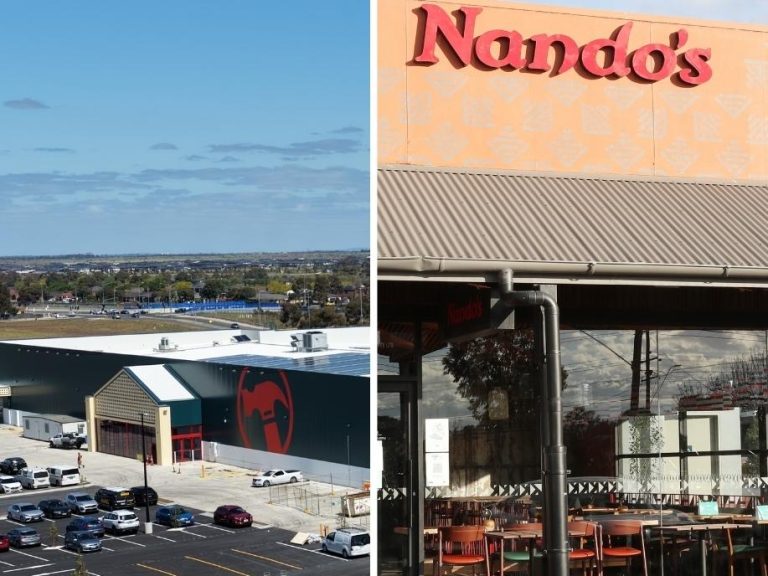Reporting gains: REITs proving their mettle in tough markets

Andrew Forrest’s Fiveight business has bought the Waldorf Astoria Sydney at Circular Quay from Lendlease.
Real estate investment trusts have had a tough run as investment markets have questioned whether they have got what it takes to ride out the property cycle.
After being decimated during the coronavirus crisis – retail landlords and residential players were the first to be hit – the office owners and property funds managers followed them down. But there has been some relief in this reporting season.
Feared valuation writedowns have been kept in check. While the office market is still tough, retail landlords have reported that shoppers are coming back and their properties, even in hard-hit CBDs, are recovering.
But there are certainly storm clouds on the horizon.
The resurgence of inflation and the clampdown by central banks worldwide on credit is starting to bite and will become a feature of the year. Big companies are calling out the impact.
Perhaps the most sobering outlook came from departing GPT chief executive Bob Johnston, who highlighted both interest rates and still hard office markets.
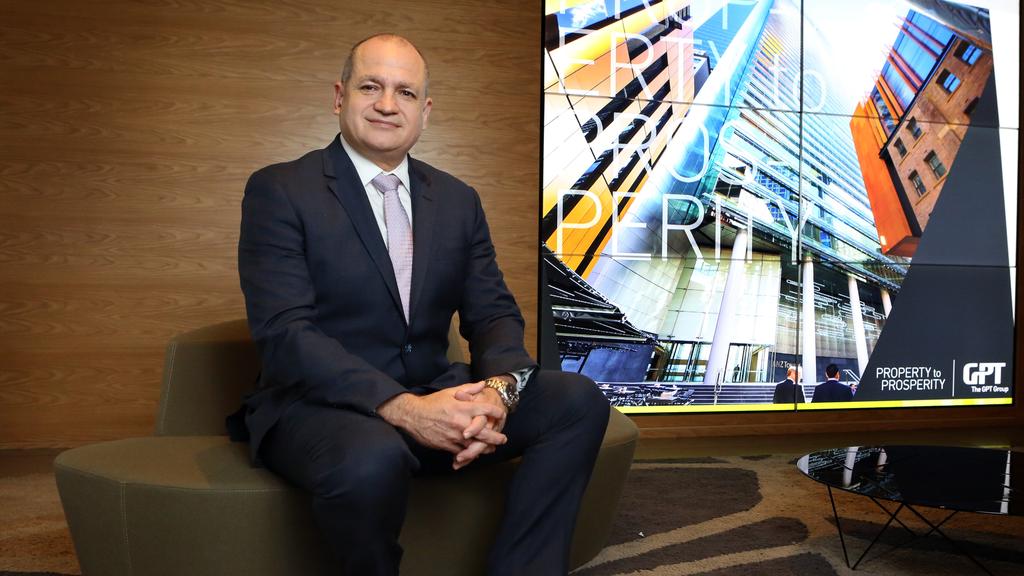
GPT’s departing chief executive Bob Johnston. Picture: James Croucher
“Rising bond yields have led to a softening of valuation metrics for real estate assets. This has been partly offset by market rent growth, particularly for the logistics sector,” he said.
Retail has come back but momentum could slow and “higher interest rates and inflationary pressures are expected to moderate retail sales growth over the course of 2023”.
Despite its management ructions, retail landlord Vicinity Centres experienced a very strong sales recovery. Chief executive Peter Huddle said this reflected the resilience of Australian consumers.
“Luxury retail, and apparel and footwear, particularly at our outlet centres, remain among the strongest performing categories,” he said. “We didn’t see the moderation of sales as a result of monetary policy associated with interest rates that we expected.”
But this came with a caveat. “We anticipate the second half to be more challenging and we do expect sales to moderate particularly with monetary policy activity to curb inflation,” Mr Huddle said.
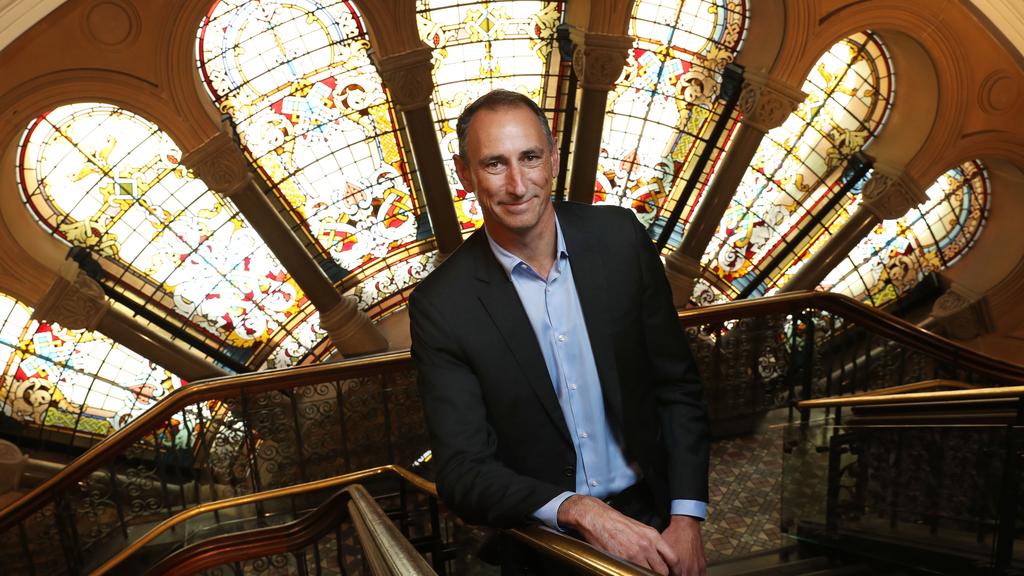
1Vicinity Centres chief executive Peter Huddle. Picture: John Feder
And residential players Mirvac and Stockland demonstrated the travails prompted by the cocktail of higher rates, supply chain squeezes, and simple bad weather.
Both companies were able to work around this; Stockland unveiled a new alliance with Japanese company Mitsubishi, and Mirvac moved ahead with its build-to-rent operation. However, they showed it certainly won’t be easy.
Mirvac chief executive Susan Lloyd-Hurwitz said the developer would hit full-year expectations despite the wet weather, continued inflation, rising interest rates, supply chain challenges and labour shortages.
“There is no doubt that the operating environment in which we’re in is challenging,” Ms Lloyd-Hurwitz said.
“We believe Mirvac is extremely well positioned not only to navigate this part of the cycle, but also to benefit from the upswing that will follow.”
Stockland chief executive Tarun Gupta said that housing demand was just starting to pick up, with the delay as affordability was yet to hit the “green zone”.
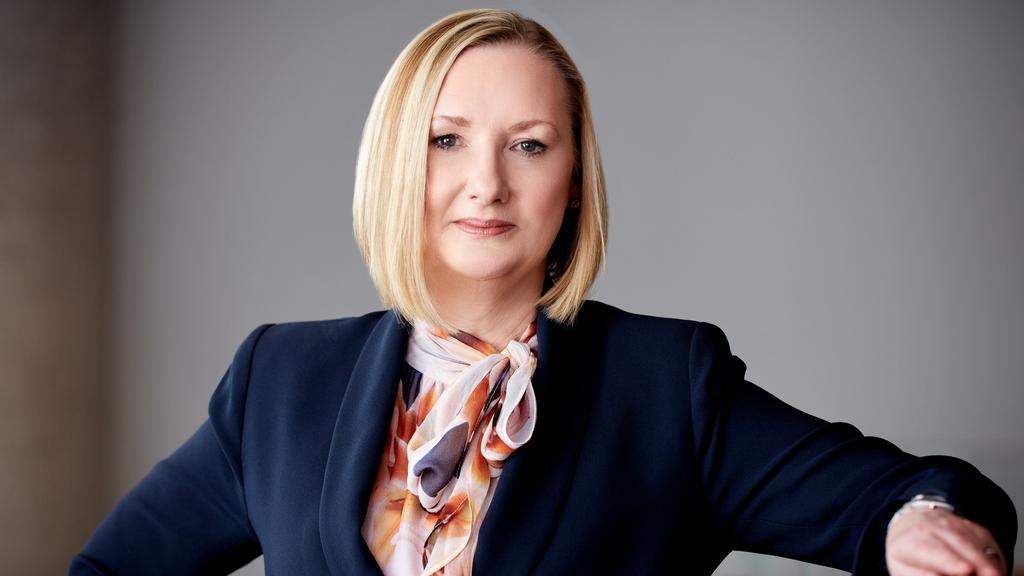
Mirvac chief executive Susan Lloyd-Hurwitz.
“We think calendar 2024 is where those moving parts align at a macro level, particularly in all the states, but in Sydney to get there we still need another 5 to 10 per cent declines in price for that equilibrium to emerge,” Mr Gupta said.
Lendlease chief executive Tony Lombardo also noted that Australian residential sales were also subdued, reflecting the same mix of high rates and inflationary pressures.
But at the luxury end it is running hot. At the One Circular Quay project in Sydney about 42 per cent of the 158 luxury apartments by value have sold at record rates.
“We haven’t actually launched all the residential yet, so it’s quite pleasing, so that’s about $800m of revenue to date,” Mr Lombardo said.
While big trusts are coming in ahead of expectations, the direct market is quiet.
Sequoia Asset Management investment manager Winston Sammut said that with only a few of the larger REITs now left to announce results, the trend appears evident.
“Firstly, transaction activity slowed down in the six months to December and indications are that this trend has continued into the current half,” Mr Sammut said.
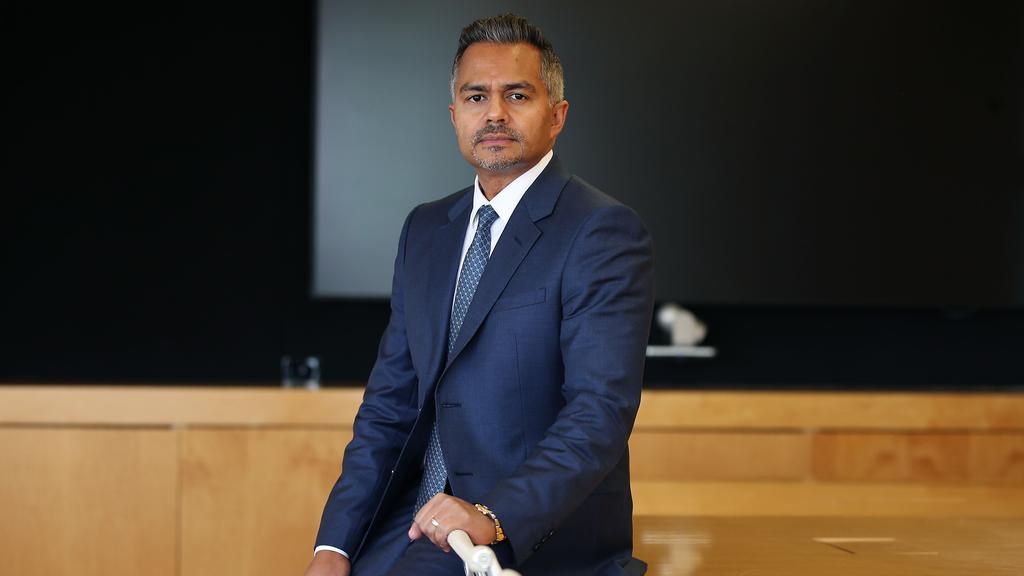
Stockland managing director and chief executive Tarun Gupta. Picture: Jane Dempster
“Valuations, which should be driven by rising interest rates and therefore rising cap rates, are yet to see meaningful downward moves as property managers and valuers appear reluctant to bite the bullet.”
The funds veteran said that most results to date have come in either in line with expectations or within small deviations from expectations. He called out the strength of logistics property giant Goodman Group.
“(That) is considered to have been the best result in this current reporting period, not just because the group is exposed to the in demand industrial property sector, but it has low gearing and has been less impacted by the cost of debt and it has a sound line up of development projects yet to be delivered,” he said.
Once out of favour shopping centres are also performing, with Mr Sammut saying that Vicinity had put in a sound result, driven by a strong operating performance and a reversal of a prior provision, so that fiscal 2023 guidance was upgraded by about 8 per cent.

Lendlease chief executive Tony Lombardo.
“Notwithstanding Vicinity has a positive skew in the second half, consumer confidence is likely to be negatively impacted by a continuation of higher interest rates,” he said.
Goodman chief executive Greg Goodman said there was still a lot of volatility in the market and big pension funds were investing with top operators as debt-driven deals fell from favour.
“If you look at the big global investors, they are going to be cautious, they’re going to be sensible, and we suspect there will be a rationalisation of managers and operations over the next year or two, because, high-leverage operations using financial leverage as a way of getting return is clearly off the table,” he said.
Top property owners also believe their assets will see them through.
Dexus chief executive Darren Steinberg said the company was continuing to benefit from the flight to quality offices. He acknowledged the influence of macroeconomic uncertainty and higher rates.
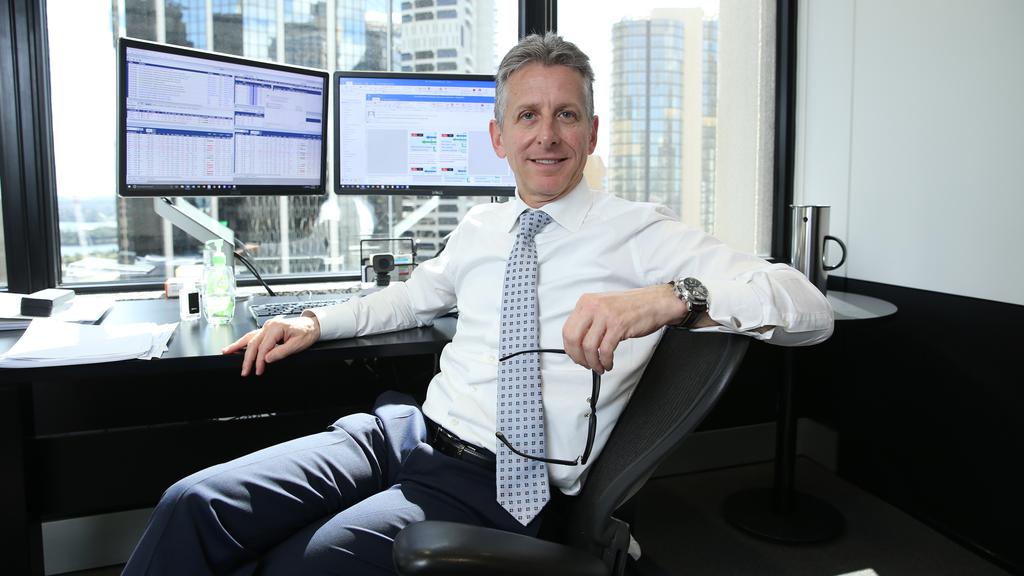
Dexus chief executive Darren Steinberg. Picture: Britta Campion
But on the ground he sees strong interest in real estate assets.
“There’s still a lot of capital out there looking for product and … we’ve had a lot of investors coming in from offshore to review the market and to look at assets,” he said.
“I think you’ll see more capital being deployed this year.”
Charter Hall chief executive David Harrison said there was a strong split of tenant demand with most going for modern assets.
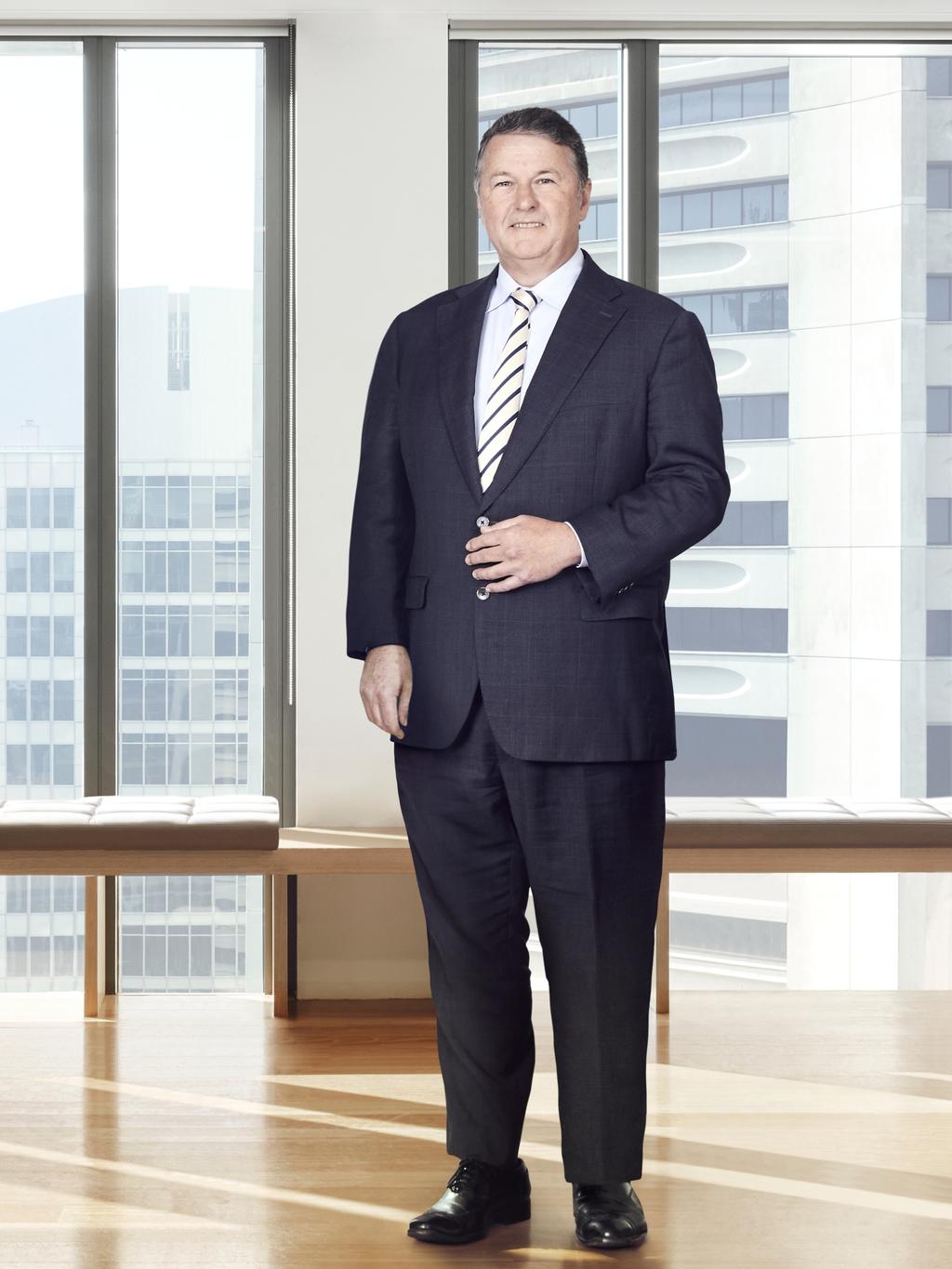
Charter Hall Group chief executive David Harrison.
“There’s going to be quite a bifurcation and I think the more modern assets are going to enjoy very low vacancies and older stock is going to actually experience the opposite,” he said.
Big pension funds are still pouring funds into the sector.
“Good quality real estate is still being sought after. I don’t see any massive change in demand for real assets over the coming years. Yes, people are more cautious, but I would expect this area to continue to be able to attract capital in all of those segments,” he said.
However, listed investors noted the downbeat tone that has taken hold after multiple rate rises.
“The management commentary has been cautious and subdued, primarily due to the uncertainty surrounding a lack of confidence regarding the state of the domestic economy,” Mr Sammut said.
And there may be few immediate catalysts for real estate stocks.
“A-REITs, in the main, are expected to linger trading at varying discounts to their net tangible assets yet offering attractive income yields and offering attractive long-term opportunities,” Mr Sammut said.
But the property chiefs are staying bullish and readying for the next cycle.

